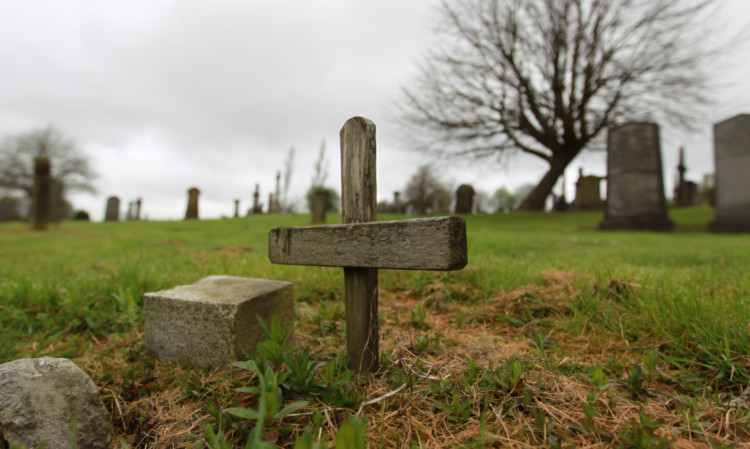
Hundreds of skint Scots who died last year had paupers’ funerals.
A Sunday Post investigation has discovered that local authorities were forced to cover the cost of at least 368 no-frills services after no next of kin could be found or their families couldn’t afford a funeral.
The bill for these burials and cremations across Scotland was close to £500,000 last year. But that figure will be much higher as some councils didn’t respond to our survey.
Many of the state-funded funerals were for lonely, older people. Tragically, some were even buried beside strangers in mass graves.
Chief executive of Age Scotland Brian Sloane said: “It’s incredibly sad that anyone’s death should go unmarked.
“The cost of funerals has risen and it is a real issue for many people, some of whom feel they can’t afford to die. As a nation we are still not comfortable talking about death.
“Until we start being more open about it, we’re not going to be able to plan, not just for the financial implications, but so we can discuss people’s personal wishes.”
The average cost of a funeral across the UK is £3,500. But basic council services under the National Assistance Act 1948 cost upwards of just £950.
Most Scottish councils including Glasgow and Edinburgh prefer to use cremations as a way of disposing of those who can’t afford their own funerals.
Over the past three years, the capital’s council paid for 367 funerals, a small proportion of which just 12 last year were burials. Behind them was Glasgow with 204 services, all of which were cremations. Aberdeen had 116. Dundee City Council paid for just 45 funerals over the same period.
But some councils have admitted using Dickensian mass graves to put bodies in. North Lanarkshire Council admitted burying eight penniless Scots in mass graves in the last year, with four piled into each layer.
Tim Morris, of Institute of Cemetery and Crematorium Mana-gement, said: “It’s not surprising so many are unable to afford a funeral. There is a growing concern about funeral poverty. The costs of them are soaring, leaving many unable to afford them.”
Across the UK some 4,100 were buried in council-assisted funerals last year up nearly a third from 2,900 in 2009.
Angus, Aberdeenshire, East Ayrshire, East Dunbartonshire, East Lothian, East Renfrewshire, Fife, Stirling and West Lothian councils did not respond to our query.
Clackmannanshire Council paid for the burial of three prisoners at Glenochil jail, near Alloa, in 2012 and 2013 because no-one would cough up for the cons.
In 2012, taxpayers paid for the funeral of kidnapper William Ellis after he fell ill in the jail. Ellis, 53, was serving four years for plotting to torture a woman.
Ellis was tried for the murder of Mary McKinlay in Motherwell in 1994, but the case was found not proven after his wife Susan gave him an alibi.When they split, Ellis kidnapped Susan at gunpoint and kept her in his van for four days. He later plotted an abduction against a third unnamed woman, which saw him jailed.
In 1997, a British man received global condemnation for leaving his wife to be buried in a pauper’s grave in Scotland while on a hiking holiday.
Husband Donald Cooper, from Leicestershire, didn’t attend the service and told stunned friends the couple weren’t sentimental and they could even threw her body in the River
Clyde. Stirling Council had to set up the burial and pay the £500 bill for June Cooper, 58, who died from complications after injuring her ankle in an accident while walking. Rev Hamish McIntosh, who held the service, said: “It’s so tragic, harsh and heartless.”

Enjoy the convenience of having The Sunday Post delivered as a digital ePaper straight to your smartphone, tablet or computer.
Subscribe for only £5.49 a month and enjoy all the benefits of the printed paper as a digital replica.
Subscribe